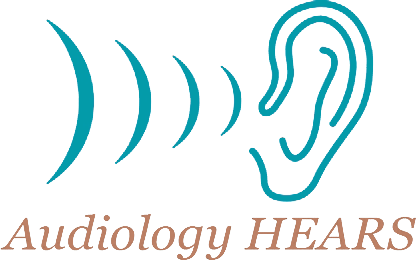As leaders in audiology, we are dedicated to preserving and enhancing the precious sense of hearing, We are excited to share with you the latest insights into the role of nutrition in hearing health. Hearing loss is a significant and growing global concern, but there’s much more to its prevention and management than traditional audiological approaches. Recent research has unveiled a fascinating connection between nutrition and hearing health, offering a promising path towards reducing the risk of hearing loss and improving the quality of life for those affected. In this article, we will explore the latest advancements in hearing loss prevention, diagnosis, and management, with a special emphasis on the role of nutrition.
The Growing Concern of Hearing Loss
Hearing loss affects millions of individuals worldwide, and its prevalence is on the rise. It can result from a variety of factors, including genetics, aging, noise exposure, infections, and certain medical conditions. The consequences of hearing loss extend beyond communication difficulties; it can lead to social isolation, cognitive decline, and reduced overall well-being.
Early Detection is Key
Early detection of hearing loss is crucial for effective management. Regular hearing screenings, especially for those at risk, can help identify problems in their infancy, allowing for timely intervention. This is where nutrition comes into play as an often overlooked yet powerful ally in the battle against hearing loss.
Nutrition and Hearing Health
Recent research has shed light on the close relationship between nutrition and hearing health. Proper nutrition can protect against hearing loss, delay its onset, and even mitigate its effects. Here’s how:
- Antioxidants and Free Radicals: Antioxidants such as vitamins A, C, and E help combat the damaging effects of free radicals in the inner ear. Free radicals can accelerate the aging process of auditory cells, leading to hearing loss. Consuming a diet rich in fruits and vegetables can boost your antioxidant intake and protect your hearing.
- Omega-3 Fatty Acids: Omega-3 fatty acids, found in fish like salmon and walnuts, have been linked to improved blood flow to the inner ear. This enhanced circulation can contribute to better hearing health by ensuring that vital nutrients reach the delicate auditory cells.
- Magnesium: This mineral plays a vital role in protecting the inner ear from noise-induced damage. Incorporating magnesium-rich foods like spinach, almonds, and whole grains into your diet may help reduce the risk of hearing loss, especially for those exposed to loud environments.
- Zinc: Zinc is essential for maintaining the health of the auditory system. Adequate zinc intake, available in foods like beef, poultry, and beans, can contribute to preventing age-related hearing loss.
- Folate: Folate, a B-vitamin found in green leafy vegetables and legumes, is associated with a reduced risk of hearing loss, particularly in older adults.
Regenerative Interventions
While nutrition is a powerful tool in hearing health, ongoing research is paving the way for even more futuristic interventions:
- Gene Therapy: Genetic factors play a significant role in hearing loss. Gene therapy holds great promise in addressing specific genetic mutations responsible for hearing loss, potentially restoring or preserving hearing function.
- Cochlear Implants: Advancements in cochlear implant technology are improving hearing restoration outcomes, even for those with profound hearing loss.
- Hair Cell Regeneration: Regenerating damaged hair cells in the inner ear is a hot topic in hearing research. Innovative treatments may soon enable the restoration of hearing in those with sensorineural hearing loss.
Putting It Together
In the world of audiology, we stand at the threshold of an exciting era where nutrition plays a pivotal role in hearing health. The latest research underscores the importance of maintaining a balanced diet rich in antioxidants, omega-3 fatty acids, magnesium, zinc, and folate. This dietary approach, combined with early detection and innovative interventions, offers hope for reducing the impact of hearing loss on individuals and society as a whole.
As hearing professionals, we encourage you to take proactive steps in preserving your hearing health. Regular hearing screenings, a nutritious diet, and staying informed about the latest advancements in hearing health can make a significant difference in your journey towards a lifetime of clear and vibrant hearing. Together, we can combat hearing loss and help you enjoy the sounds of life to the fullest.
We hope you found this article to be both insightful and beneficial. If you have any questions about hearing loss or would like to schedule your next hearing checkup,please contact us. Our team of friendly hearing health professionals are ready to assist you with all your hearing related needs.
